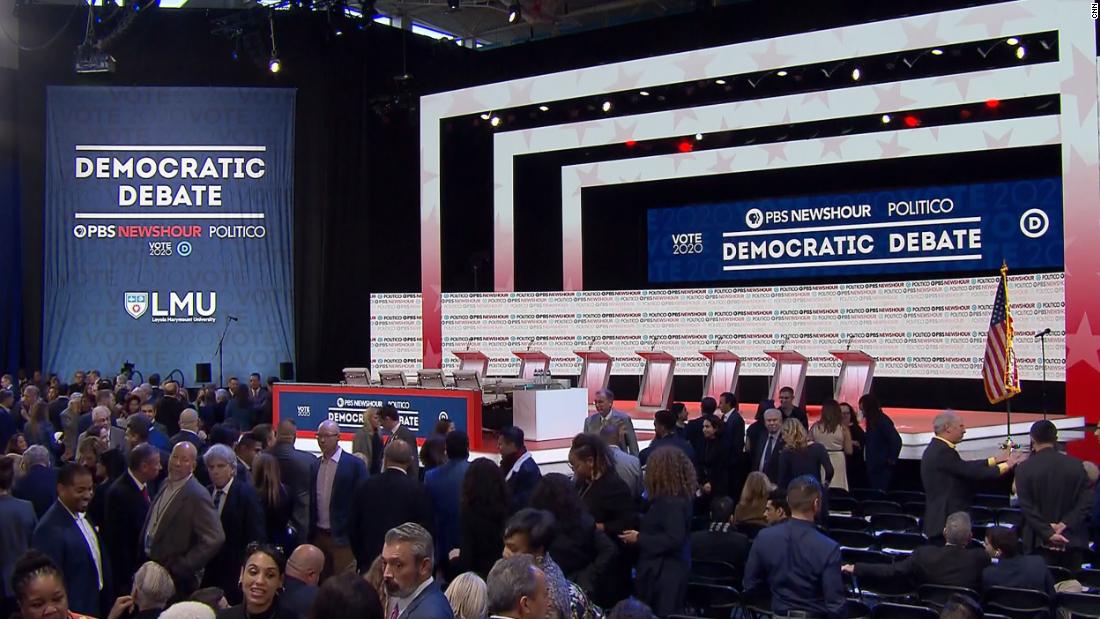
Tonight's debate is being hosted by PBS and Politico, and comes a day after the House of Representatives impeached President Donald Trump. It also comes the same day the House voted to approve Trump's US-Mexico-Canada Agreement.
Just a month and a half before the Iowa caucuses, the three-hour debate may offer candidates a chance to delve more deeply into their policy disagreements than they have in their five previous clashes.
Only seven candidates met the party's thresholds for qualification this time: former Vice President Joe Biden, Vermont Sen. Bernie Sanders, Massachusetts Sen. Elizabeth Warren, South Bend, Indiana, Mayor Pete Buttigieg, Minnesota Sen. Amy Klobuchar and businessmen Andrew Yang and Tom Steyer.
We will post fact checks as we complete them.
Yang and Sanders on black maternal mortality
In response to a question about being the only non-white candidate on stage, Yang pointed to statistics on disenfranchisement among communities of color, noting that "if you're a black woman, you're 320% more likely to die from complications in childbirth." Sen. Bernie Sanders later echoed the claim, asserting that "black women die three times at higher rates than white women."
Facts First: The candidates are correct -- black women die from childbirth complications more than three times as often as do white women, according to government medical data.
According to a report released in May using Centers for Disease Control data from 2011 to 2015, black women experienced 42.8 pregnancy related deaths for every 100,000 live births -- 3.3 times as high as the 13.0 such deaths for every 100,000 live births among white women.
The study showed that about 700 women die due to pregnancy-related complications in the United States each year.
— Caroline Kelly
Sanders on arms spending
Calling for an international effort to fight the climate crisis, Sanders criticized global spending on weapons.
"And maybe, just maybe, instead of spending $1.8 trillion a year globally on weapons of destruction, maybe an American president -- i.e. Bernie Sanders -- can lead the world. Instead of spending money to kill each other, maybe we pool our resources and fight our common enemy, which is climate change," Sanders said.
Facts First: Sanders was speaking imprecisely. The $1.8 trillion figure represents all global military spending in 2018, not spending on weapons in particular.
Upon issuing the $1.8 trillion figure in April, the Stockholm International Peace Research Institute, an international authority on military spending, said it "discourages the use of terms such as 'arms spending' when referring to military expenditure, as spending on armaments is usually only a minority of the total."
"Military expenditure refers to all government spending on current military forces and activities, including salaries and benefits, operational expenses, arms and equipment purchases, military construction, research and development, and central administration, command and support," the Institute said.
— Daniel Dale
No comments:
Post a Comment